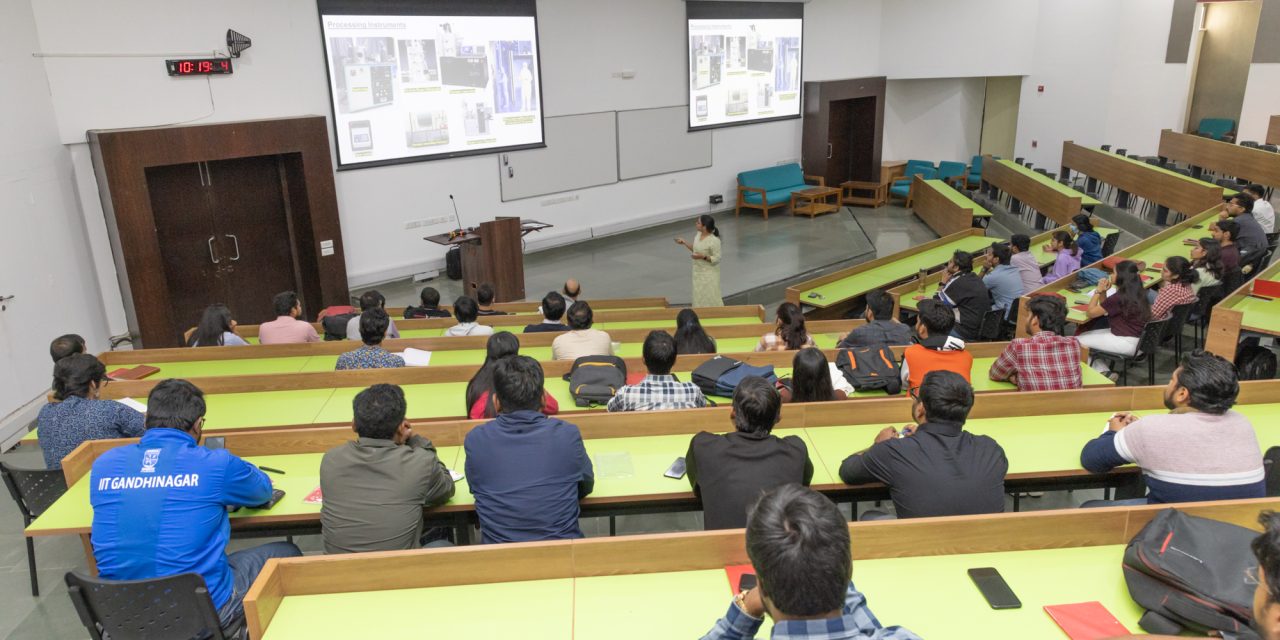STORY CREDITS
Writer: Vasudha Chatterjee
Photo: Mayur Bhatiya
The Indian Institute of Technology Gandhinagar (IITGN), in partnership with Pfeiffer Vacuum organised ‘Vacuum Day’ on Feb 7, 2025, on its campus. Shedding light on the importance of vacuum technology, the event comprised of theoretical lectures as well as practical demonstrations, and was attended by around 100 participants from various educational institutions in Gujarat.
The event started with a brief introduction by Prof Emila Panda, Professor, Materials Engineering, IITGN, who presented a theoretical overview of the subject. She underlined the relevance and applicability of vacuum technology in our daily lives and foregrounded some of the pivotal questions concerning the field. “Pfeiffer is one of the leading vacuum technology manufacturers we have today. From supplying a range of pumps, gauges, and leak detectors to residual gas analysers, and other vacuum components, the company is doing an excellent job in providing solutions related to vacuum systems. It is indeed our pleasure to host the team, who have agreed to demonstrate their products, and give a detailed lecture about their working principles” remarked Prof Panda.
While Prof Panda’s lecture set the theoretical foundation for the day, Mr Ranjan Kumar Sahu, Regional Manager, Pfeiffer Vacuum, gave a practical overview of the subject. He highlighted the ubiquity of vacuum technology by noting the various fields we use it in, and emphasised its importance in the semiconductor industry, which is rapidly proliferating in Gujarat. “From the food you eat to the chair you sit in, vacuum technology is everywhere.” said Mr Sahu. He also introduced the participants to various kinds of pumps, including roughing pumps, diaphragm pumps, scroll pumps, diffusion pumps, and more, while simultaneously explaining their design technologies and functions.
Both the lectures were followed by an interactive workshop, where Mr Sahu provided hands-on training of vacuum generation in rough vacuum pumps and turbo molecular pumps (ultra-high vacuum).

He also demonstrated the principles of vacuum measurement, leak detection, partial pressure measurement, helium leak detection, and explained the functioning of the various components constituting various pumps. The session culminated with a lively question and answer session, where the queries of several participants were addressed patiently. Noting the significance of this event, a student from Surat said, “I came all the way from Surat only to attend this session, and I am glad that I did. It not only helped me grasp several concepts that were hitherto unclear to me but also underlined the significance of industry-academia collaboration in solving real-life problems.”

